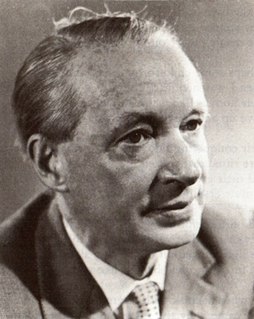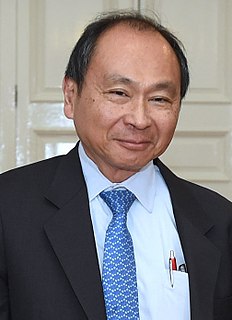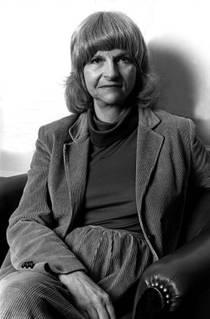A Quote by Mehmet Murat Ildan
We have invented the literature because the reality wasn't imaginative enough and we also wanted to be alone, at least for a while!
Related Quotes
I always have done work on mythic relations since I started writing. I really want to be a novelist, or at least a writer of imaginative work... I do try to make my critical studies imaginative and try to write them in ways that are more like literature than philosophy, but I have disappointed myself because I am still so wedded to criticism.
We invented marriage. Couples invented marriage. We also invented divorce,mind you. And we invented infidelity,too, as well as romantic misery. In fact we invented the whole sloppy mess of love and intimacy and aversion and euphoria and failure. But most importantly of all, most subversively of all, most stubbornly of all, we invented privacy.
Plot involves fragmentary reality, and it might involve composite reality. Fragmentary reality is the view of the individual. Composite reality is the community or state view. Fragmentary reality is always set against composite reality. Virginia Woolf did this by creating fragmentary monologues and for a while this was all the rage in literature. She was a genius. In the hands of the merely talented it came off like gibberish.
As a piece of travel literature alone, 'The Ends of the Earth' succeeds in providing a tangible sense of the sweaty, smelly reality of many exotic points on the map, with glimpses of their cruelty but also, occasionally, of beauty and human kindness. As a piece of analysis, it is deeply thought-provoking.
We reckoned we could make it because there were four of us. None at us would've made it alone, because Paul wasn't quite strong enough, I didn't have enough girl-appeal, George was too quiet, and Ringo was the drummer. But we thought that everyone would be able to dig at least one of us, and that's how it turned out.
The great subversive works of children's literature suggest that there are other views of human life besides those of the shopping mall and the corporation. They mock current assumptions and express the imaginative, unconventional, noncommercial view of the world in its simplest and purest form. They appeal to the imaginative, questioning, rebellious child within all of us, renew our instinctive energy, and act as a force for change. This is why such literature is worthy of our attention and will endure long after more conventional tales have been forgotten.
As I started to read nonfiction in the mid '70s, I discovered, holy cow, there was a lot of imaginative nonfiction. Not the kind where people use composite characters and invented quotes. I hate that kind of nonfiction. But imaginative in the sense that good writing and unexpected structure and vivid reporting could be combined with presenting facts.





































